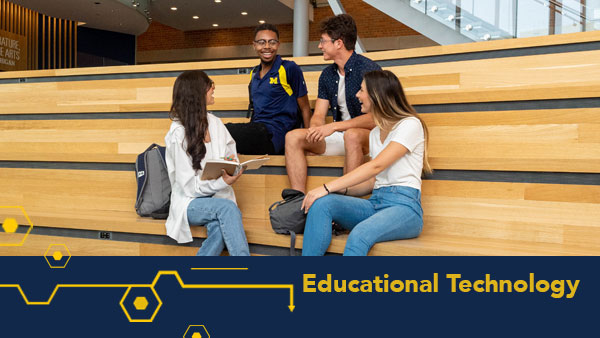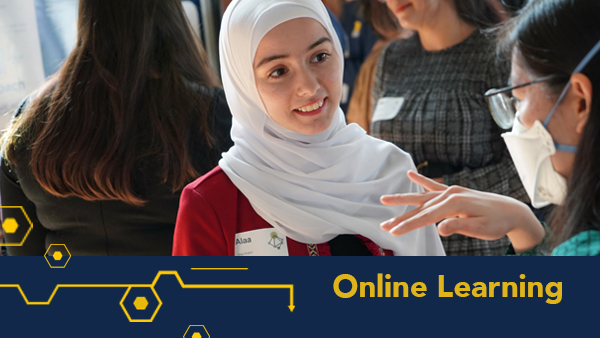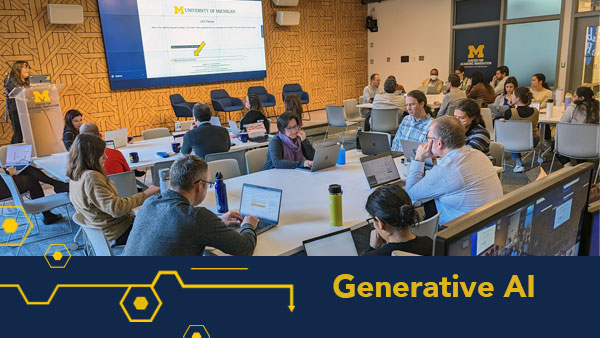Mike Daniel, Director, Policy and Operations for Digital Education & Innovation
@michaeldaniel_
As the Summer of 2015 approached, the newly formed Digital Innovation Greenhouse (DIG) — one of three labs housed in U-M’s Office of Digital Education & Innovation — identified a need for additional resources that could support several of the team’s key functions, including software development, user experience design and user community mobilization and refinement. These core functions are needed to help DIG achieve its charge of fostering educational software innovations from the University’s research community, working with their user communities to grow them to maturity, and establishing pathways to scale through collaboration across U-M’s digital ecosystem.
 In order to find people with these skills, the DIG team decided to put out a call for U-M students who would work directly in the Greenhouse over the summer. Ultimately bringing two U-M students and one recent U-M graduate on board for the summer, the DIG team quickly realized the power of partnering U-M students with its existing team of full-time developers who help translate digital engagement tools from innovation to infrastructure. The success of the summer program led DIG to create a Student Fellows Program to facilitate continued partnering with U-M students on its various initiatives over the course of the academic year.
In order to find people with these skills, the DIG team decided to put out a call for U-M students who would work directly in the Greenhouse over the summer. Ultimately bringing two U-M students and one recent U-M graduate on board for the summer, the DIG team quickly realized the power of partnering U-M students with its existing team of full-time developers who help translate digital engagement tools from innovation to infrastructure. The success of the summer program led DIG to create a Student Fellows Program to facilitate continued partnering with U-M students on its various initiatives over the course of the academic year.
The Program includes part-time student jobs centered around user experience design, software development, and innovation advocacy. Fellows are typically appointed for an entire academic term, with the option to continue on for multiple terms. Each fellow is assigned a formal mentor within DIG who helps oversee the fellow’s experience in the Greenhouse and facilitates connections for that fellow to the larger student community within DIG.
For the Fall 2015 Academic Term, there are currently ten U-M Student Fellows in the Program. They are:
- Jessamine Bartley-Matthews – 1st Year Masters Student in the School of Information focusing on user experience design
- Lena Carew – 1st Year Masters Student in the School of Education focusing on communities of practice
- Indu Ghandikota – 3rd Year Undergraduate in the College of Engineering focusing on software development
- Samarth Gulati – 2nd Year Masters Student in the School of Information focusing on user experience design and software development
- Niyati Gupta – 2nd Year Masters Student in the School of Information focusing on user experience design
- Christanna Hemmingway – 2nd Year Masters Student in the School of Information focusing on user experience design
- Akshay Potnis – 1st Year Masters Student in the School of Information focusing on software development and user experience design
- Heidi Wong – 2nd Year Masters Student in the School of Information focusing on user experience design
- Jeff Zhang – 4th Year Undergraduate in the School of Information focusing on user experience design
- Weikai Zhang – 2nd Year Masters Student in the School of Information focusing on software development
As tools supported by the Greenhouse aim to have a direct impact on student success and will often include direct application by students, the DIG Leadership team views the Student Fellows Program as an integral component to the ultimate success of DIG in achieving its mission. Students who are interested in becoming a fellow in the Greenhouse should contact the DIG team ([email protected]).


